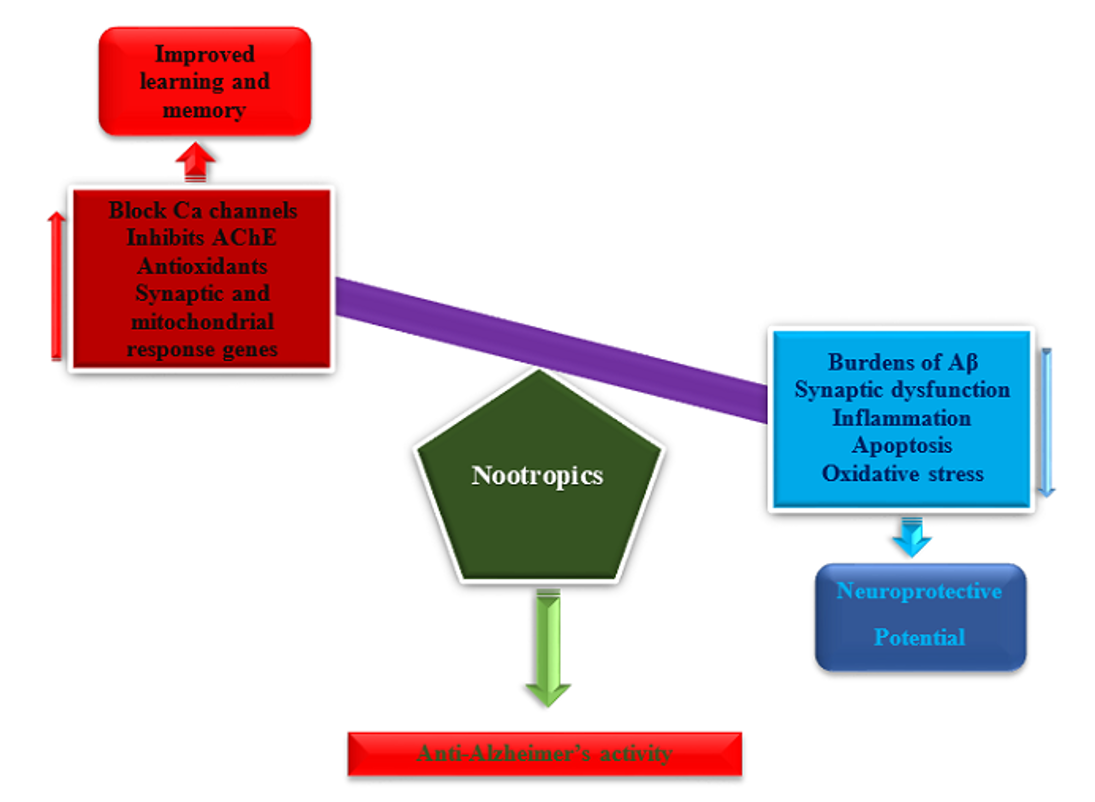The use of nootropics in Alzheimer’s disease: is there light at the end of the tunnel?
DOI:
https://doi.org/10.15419/bmrat.v6i1.513Keywords:
Alzheimer's disease, Amyloid beta hypotheses, Cholinergic hypotheses, Nootropics, Oxidative stress and cognitive impairments, tau hypothesesAbstract
Background: The nootropic or simply known as smart drug is a common term given to any compound that is responsible for enhancing mental capability or performance. Alzheimer's disease is characterized clinically by lose of cognitive abilities and pathologically by two hallmark lesions, neurofibrillary tangles and senile plaques. It is unfortunate that AD has no cure yet. In this review attempt has been made to elucidate the general views on AD pathogenic hypotheses and common nootropics being used in AD research.
Methods: Articles from credible scientific data bases such as Sciencdirect, Scopus Pubmed, and Google scholar were searched and retrieved using keywords nootropics', Alzheimer's disease', amyloid beta hypotheses', tau hypotheses', cholinergic hypotheses', oxidative stress' and cognitive impairments'.
Results: The nootropics act as Ca-channel blockers, AChE inhibitors, glysine antagonists, antioxidants, serotonergic, dopaminergic and glutamic acid receptors antagonists.
Conclusion: Based on the available literature searched, there is no doubts the nootropics are attenuating cognitive deficits in both preclinical and clinical studies on AD.

Downloads
Published
Issue
Section
License
Copyright The Author(s) 2017. This article is published with open access by BioMedPress. This article is distributed under the terms of the Creative Commons Attribution License (CC-BY 4.0) which permits any use, distribution, and reproduction in any medium, provided the original author(s) and the source are credited.
